- Home
- Patrick Robinson
The Shark Mutiny (2001) Page 10
The Shark Mutiny (2001) Read online
Page 10
“Right, sir. Meantime I’ll order the Constellation Group to proceed south toward Bandar, and the Stennis to close the strait. We’ll put the Harry Truman on twenty-four hours battle notice to sail north from DG. It’s getting pretty damned hot out there right now, and it’s hard to keep guys out there on station for more than a couple of months without sending ’em all crazy.
“If I order the Kennedy to leave Pearl in the next couple of days, she can go straight to DG. That’ll give us a four-group roulement, keeping two of them comfortably on station all the time. We can keep that up for a year if we have to.”
“Good. How’s the Kennedy doing? Christ, Alan, she’s damn near forty years old.”
“No problem, sir. She had that complete complex overhaul in 1995, made her just about brand-new. There’s nothing wrong with her. No, sir. Old number sixty-seven, a little smaller than the Nimitz-Class boats, but she still holds nearly six thousand tons of aviation fuel. Seen a lot of service. She’s like Senator Ted—indestructible. And just as bloody-minded when she feels like it.”
Admiral Morgan chuckled. The language of the Navy. He still loved it. Still felt pride swell in his chest when the big U.S. ships prepared to flex their muscles. He’d felt it during his first nuclear submarine command more than 20 years ago, and the feeling had never diminished. Arnold Morgan’s soul was essentially held together with dark blue cord, and gold braid.
Monday morning. April 30.
Officers’ Mess. U.S. Naval Base.
Diego Garcia, Indian Ocean.
Lieutenant Commander Dan Headley was just one tour of duty short of promotion to Commander in the U.S. Navy’s Pacific Submarine Fleet. At age 35, he was very proud of that. Right now he was generally regarded as one of the best submarine Executive Officers in the entire Navy. Experienced, a lifelong submariner, weapons and sonar expert, he had just flown to Diego Garcia to take up the number-two spot on the aging Sturgeon-Class nuclear boat, USS Shark.
This was one of the Navy’s underwater warhorses, probably on her last tour of duty, since she had been due for decommission in 2005. Shark was the newest of the Navy’s four Sturgeon attack submarines, and probably the best. The 5,000-tonner could make 30 knots through the water dived, she carried 23 weapons, Harpoon and Tomahawk missiles, plus torpedoes. On her deck, forward of the sail, there were two twin dry-deck shelters designed for the transport of a deep-submergence rescue vehicle (DSRV), an Advanced Swimmer Delivery Vehicle (ASDV) or a dry garage for three, even four, high-powered outboard inflatables.
Shark was quiet, extensively fitted with acoustic tiles, with anechoic coatings. She had the capacity to fire nuclear-warhead weapons, and she was capable of operating under the ice, though Dan Headley doubted that would be needed on her next journey.
He had been at the base for only three hours when word began to spread that there was something happening up in the Strait of Hormuz. Everyone knew the CVBGs of USS Constitution and John C. Stennis were already in the area. The issue was, how soon would the massive 100,000-ton Nimitz-Class Harry Truman and her consorts head north to join them in the narrow waters that guard Arabia’s landlocked Sea of Oil?
No one knew that, but senior officers considered it more likely to be hours than days. It was 2,600 miles up to Bandar Abbas, and the Truman Group could steam at 30 knots, making 700 miles a day. If they cleared DG by first light tomorrow (Tuesday), they’d be in the area before dark on Friday afternoon.
Lieutenant Commander Headley had a lot of people to meet in the next 24 hours, and from each of them he had a minor secret to conceal. SUBPAC was not really happy with the veteran Commander Donald Reid, Shark’s commanding officer, and they had specifically appointed Dan Headley to assist him in every way possible.
As far as Dan was concerned it was just a wink and a nudge, because no one would tell him what, if anything, was wrong with Commander Reid, only that he was, well, “kinda eccentric.” No one actually said “weird.” But he’d been in the submarine service a lot of years and according to observers had shown “very occasional signs of stress.”
In the modern Navy these matters are taken extremely seriously, unlike in the past when any sign of weakness or wavering was put down immediately as “shell shock” or “cowardice.” It was not unusual for the offender to be cashiered, or, for the latter transgression, in the Royal Navy on one occasion, shot.
Dan Headley was looking forward to meeting the boss with rather mixed anticipation. But before he met anyone he had a letter to write, so he parked himself in a corner of the mess with a cup of coffee, and, following the habit of a lifetime, addressed the envelope before he wrote the letter: Commander Rick Hunter, U.S. Navy Pacific Command, Coronado, California 92118.
Dear Rick,
Just a short note to congratulate you on your promotion. Well deserved, I’m sure, even in that crazy outfit that employs you. All those years ago, when we set off together for Annapolis, I always thought we’d both end up commanding U.S. warships—rather than just me (I hope!), while you roll around in the mud with a dagger between your teeth and a pocketful of explosives.
Anyway I’m here in Diego Garcia waiting to take up my new position as XO on USS Shark. My last, I’m told, before they make me up to Commander. Sometime in the next 24 hours we’re due to sail north, to guess where? Anyway, by the time you read this the Kentucky Derby will be over. Hey, what a blast if White Rajah wins it. I guess your dad will forever regret selling him as a yearling, and my dad will forever keep reminding him that he told him not to! Still, victory would be sweet, since Bart still owns the dam, and two full sisters. That would be a real lock on a major American classic family—make you guys even richer.
Funny, isn’t it, to look back at that wicked old bastard Red Rajah, and think he might be the grandsire of a Derby winner, rather than an automatic selection for a lead role in Natural Born Killers. Jeez, every time I think about him, my arm hurts!
I have to go now, meet my new crew, hope to catch a glimpse of you, certainly at Christmas, if not before.
Best always and love to Bart,
Danny
He folded the letter and sealed the envelope. Then he walked out to the front desk and asked the security guard to mail it. It was only a short walk over to the submarine jetties where the Shark awaited him.
Same morning. Monday, April 30.
Southern Fleet HQ. Zhanjiang.
“Yushu, you are very disappointed. I can see that.”
“Well, Jicai, you would have thought the Western press would have been much more alert to the consequences of two shattered oil tankers within a few miles of each other in the middle of the Strait of Hormuz.”
“Yes, I agree. But the time difference made it awkward.”
“How?”
“Well, the Washington Post ran a piece on Saturday morning covering the big fire in the liquid-gas tanker. So did several other American newspapers, but no pictures. I suppose the cameras were just too far away. But when the second tanker was damaged, it was too late for their editions. And it was a much smaller story…just an oil spill in the gulf.”
“You’ve studied the media more than I, Jicai. Has anyone made a connection?”
“Only the Sunday edition of the Dallas Morning News in Texas. They have an interview with the owner of the Global Bronco, and right underneath it, they run a story about the oil spill. But they’re not making a major point about the closeness of the two ‘accidents.’”
“Then, my Jicai, we will quickly have to persuade them otherwise.”
“Oh, I don’t think that will prove too much of a problem…we are extremely well organized.”
0900 (local). Same morning.
Washington, D.C.
Arnold Morgan had just issued a severe roasting to the Acting Director of the National Security Agency. And Admiral David Borden, frankly afraid now for his future, had gone straight to the office of Lt. Ramshawe, full of quasi-indignation that he had not been kept up to speed on the Hormuz investigation.
Jimmy Ramshawe debated the possibility of telling his boss to knock before he barged in, but decided against it. Nonetheless he detected that the Acting Director had been on the wrong end of the Big Man’s wrath, and that was not a great place to be.
“It is essential you keep me up to date,” he told the Lieutenant. “I am the person who must answer to Admiral Morgan, and it is most inconvenient when he knows more than I do.”
Again Lt. Ramshawe exercised discretion, resisting the overpowering temptation to tell Borden that everyone knew more than he did.
Instead he said simply, “Sir, I was under the impression that you wanted the whole subject ignored until there was hard evidence. That’s what you told me.”
“Correct. But when the second tanker was damaged, surely you knew I must be informed of your investigation, the fact that the ships were so close.”
“Sir, I wrote up my report and handed it to your duty officer on Saturday morning. I came in especially.”
“Well, it did not reach me. Which put me at a tremendous disadvantage, because Arnold Morgan had worked it out precisely as you did.”
The Ramshawe discretion vanished. “Sir, it is beyond my imagination that anyone could work it out any other way. The bloody towelheads and the Chinks have mined the bloody strait. I’ve been telling you that for a month. We even know where the bastards got the mines. I’ve also been telling you that for weeks. And if you still want my advice, I’m also telling you there’s more to come on this.”
Admiral Borden retreated, saying as he left, “Just make sure I’m kept up to speed on this. It is essential that I’m on precisely the same knowledge level as Admiral Morgan.”
David Borden shut the door noisily, missing Jimmy Ramshawe’s “That’ll be the bloody day.”
More importantly he had forgotten to ask what further developments there were, even though he could see the pile of satellite photographs on the young surveillance officer’s desk.
Big mistake. Jimmy Ramshawe had pictures of four tankers, three Iranian, one Chinese, making passage out of the gulf on the Iran side of Hormuz. They had all crossed the line of the minefield, exiting through an area less than three miles wide, four and a half miles offshore at the nearest point.
“That’s it,” he murmured. “They’re still transporting Iranian crude, and Chinese refined oil from Kazakhstan, right through that gap, while the rest of the world sits and waits for clearance from the Omanis to continue on. And they’re not going to get it. The strait is going to become a giant tanker park, while the Ayatollahs and the Chinese get rich.”
He picked up the secure telephone and dialed the main White House switchboard, from where he was put straight through to Admiral Morgan, as instructed. “It’s between fifty-six-fifty-six and fifty-six-fifty-nine-east, sir,” he said. “Four ships so far, three Iran, one China.”
“Thanks, Jimmy. Go tell your boss, while I tell mine.”
The afternoon newspapers came up, and still no one was making any kind of speculation that something was drastically wrong in the Strait of Hormuz. Arnold Morgan paced his office, wracking his brains, waiting for the inevitable. Jimmy Ramshawe stayed at his desk long after his shift was over, staring at the satellite photographs, occasionally talking to the CIA’s Middle Eastern desk at Langley. But there was nothing. Just the shattering coincidence of two ships damaged in the same stretch of water in the strait.
The President had listened to Admiral Morgan’s suspicions with equanimity. The relationship between the two men was at a very low point. Eight months previously Arnold Morgan had threatened to quit, and to take the President with him. Everyone knew he could have done so. The grotesque scandal and cover-up over the incident last year in the South China Sea were like a loaded revolver at the Chief Executive’s head. John Clarke would sit out his final months in the Oval Office, courtesy of his National Security Adviser.
And he was not a man to relish this. Thus he treated any warning from his supposed right-hand man with suspicion and a negative turn of mind. He had been receptive to the idea of moving heavy Naval muscle up into the strait, because he recognized the lethal consequences of being wrong. He stated curtly that such matters were what the Admiral was paid to do, and to proceed as he thought fit.
He later sent a memorandum to Admiral Morgan outlining the gist of their conversation, and absolving himself of any blame whatsoever if this thing blew up in everyone’s face, with the entire Navy on the move at huge expense, for nothing.
Arnold Morgan screwed up the memo and tossed it, dismissing its contents as the ramblings of a disarranged mind, if not those of a “total asshole.”
1900 (local). April 30.
The Strait of Hormuz.
The American-owned crude carrier Galveston Star was, without question, the biggest VLCC currently operating in the Gulf. She had a deadweight of 420,000 tons, and her six cargo tanks were fully laden with 450,000 cubic meters of oil, loaded from the man-made steel island at Mina al Ahmadi off the Kuwaiti coast. She was bound for the Gulf of Mexico, and making 20 knots, just about due east now, through Hormuz.
Her comms room had picked up the warning from the Omani Navy that temporary restrictions were in operation and that there was no clear seaway out to the Arabian Sea at this time. The restricted area ran in a line from Ra’s Qabr al Hindi on the northern Omani coast right across to the Iranian shore more than 30 miles away at position 25.23N, 57.05E. No explanation was offered, save for the fact that a LNG carrier had burned out three days ago, and a damaged VLCC was still leaking oil a dozen miles farther east.
Captain Tex Packard was unimpressed. His tanker took almost four miles to come to a halt traveling at this speed. He was late, after a pump problem at al Ahmadi where he had spent almost 34 hours loading, instead of the scheduled 21. And it was hotter than hell. All he wanted to do was “drive this baby the fuck out of this godawful place and get home to the Gulf Coast of the USA,” where, incidentally, it was also hotter than hell.
Captain Tex was not just a dyed-in-the-wool, lifelong tanker man. He was a copper-bottomed purist, even among the men who drive these technological atrocities along the world’s oceans. His ship was almost a quarter of a mile long, and he knew every inch of her.
He was a great blond-haired bull of a man from the Panhandle plains of northwest Texas, where, he constantly reminded his shipmates, a man could still make a living on the back of a horse, riding the vast cattle ranches. Why, his own family had been doing so for generations, and he was the very first of the Packard cowboys to leave those wide-open spaces for a different kind of wilderness.
At the age of 47, Captain Tex still spoke fondly of the Panhandle city of Lubbock, where he had attended Texas Tech University in the hometown of the legendary rocker Buddy Holly. In fact Buddy had died the year before Tex was born, but the big sea captain spoke of him as if they had been fast friends “back home in Lubbock.”
And there were still sweltering evenings in the Iranian Gulf when the distant cries of the mullahs summoning the faithful on the echoing loudspeakers above the mosques mingled out on the calm water with the unmistakable sounds of “Peggy Sue,” “Maybe Baby,” and “Oh Boy!” drifting out from the bridge of the gigantic Galveston Star.
First thing Captain Tex did when he welcomed a new crew was to make sure they could join in the chorus of “Peggy Sue,” and to make equally certain the cook knew precisely how to make the fabled Texas dish of chicken-fried steak (CFS). He showed them how to pulverize the beef to within an inch of its life with a kitchen mallet, then hand-dip it in egg batter, double-dredged in seasoned flour, before dropping it into searing-hot oil in an iron skillet.
“That’s CFS, boy,” he would rumble in his deep baritone drawl. “Cook that raht, and you’ll get a place on the highest honor role in mah home state. Ain’t but a few cooks can git it just raht, and I want you to join that golden group, hear me?”
There was, however, nothing of the buffoon about Tex Packard. He was a superb navigator,
and supremely confident in his own unique ability to handle his city-sized vessel, probably the biggest ship there had ever been, and just about indestructible, with her double hull and watertight compartments. As he frequently reminded his crew, “Fifty years ago the British and French landed an army at Suez with nothing else to do ’cept keep the crude-oil carriers moving.”
He knew the history of the world of tankers, understood that normal life, for millions and millions of people, rested entirely on the free and unimpeded passage of these monster ships.
It was thus a surprise to no one when Captain Tex Packard told his Chief Engineer, his Cargo Officer and his Chief Officer he had no intention of stopping for the goddamned Omani Navy, whatever their problem was. “Christ, you could lose their entire country in West Texas…. We’ll keep steering zero-nine-zero, and make our southerly turn when we’re just out of Oman’s national water, but not far enough into the Iranian side. Right then we’re going straight through. Next stop, the Texas Gulf Coast, and no more bullshit.

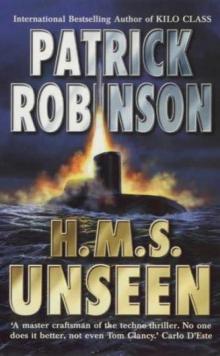 H.M.S. Unseen am-3
H.M.S. Unseen am-3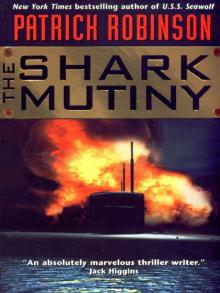 The Shark Mutiny (2001)
The Shark Mutiny (2001)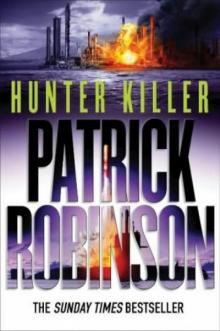 Hunter Killer am-8
Hunter Killer am-8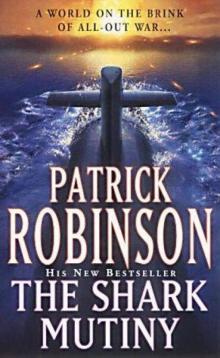 The Shark Mutiny am-5
The Shark Mutiny am-5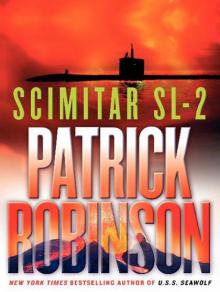 Scimitar SL-2
Scimitar SL-2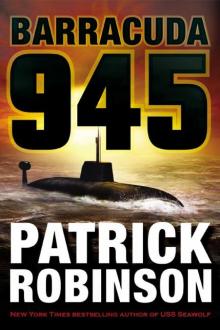 Barracuda 945 am-6
Barracuda 945 am-6 Hunter Killer
Hunter Killer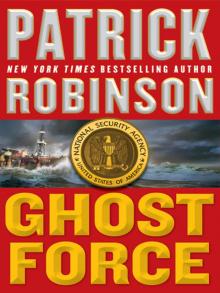 Ghost Force
Ghost Force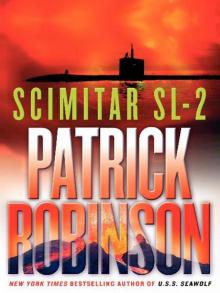 Scimitar SL-2 (2004)
Scimitar SL-2 (2004)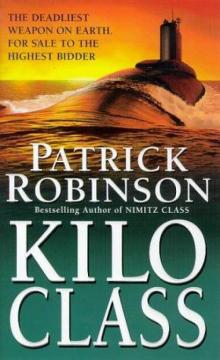 Kilo Class am-2
Kilo Class am-2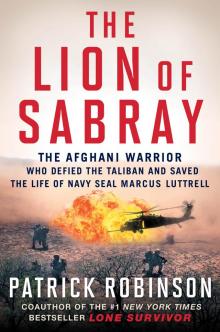 The Lion of Sabray
The Lion of Sabray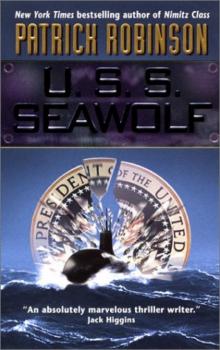 U.S.S. Seawolf am-4
U.S.S. Seawolf am-4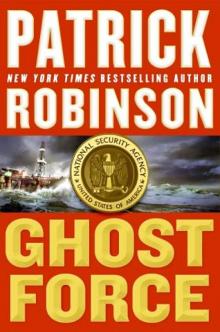 Ghost Force am-9
Ghost Force am-9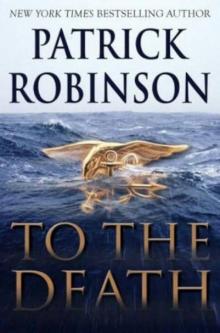 To the Death am-10
To the Death am-10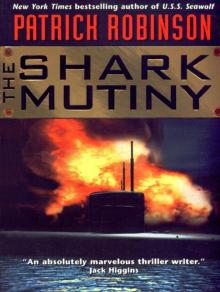 The Shark Mutiny
The Shark Mutiny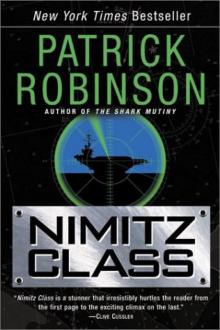 Nimitz Class am-1
Nimitz Class am-1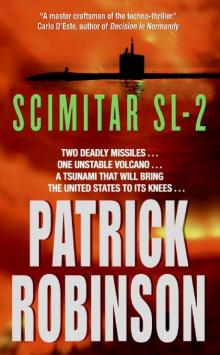 Scimitar SL-2 am-7
Scimitar SL-2 am-7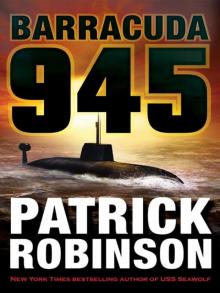 Barracuda 945
Barracuda 945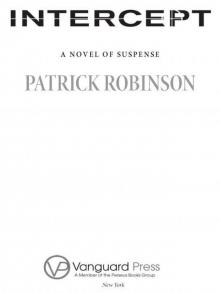 Intercept
Intercept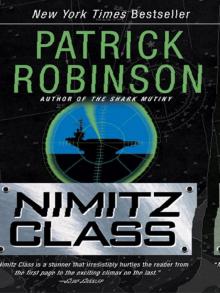 Nimitz Class (1997)
Nimitz Class (1997)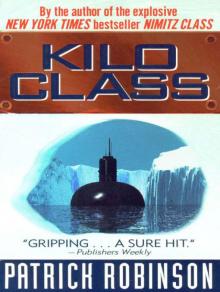 Kilo Class
Kilo Class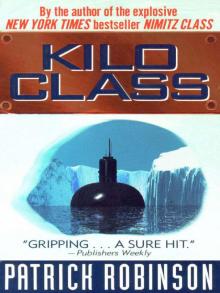 Kilo Class (1998)
Kilo Class (1998) Diamondhead
Diamondhead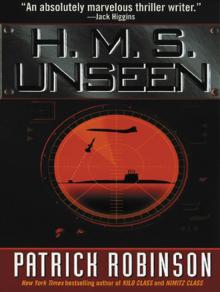 H.M.S. Unseen
H.M.S. Unseen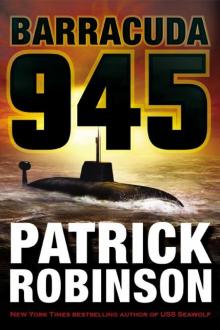 Barracuda 945 (2003)
Barracuda 945 (2003)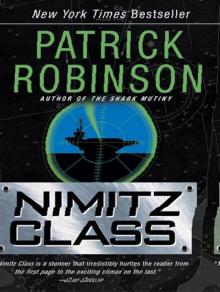 Nimitz Class
Nimitz Class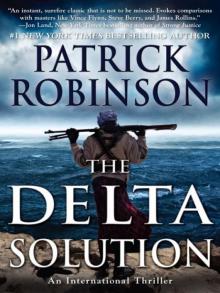 The Delta Solution
The Delta Solution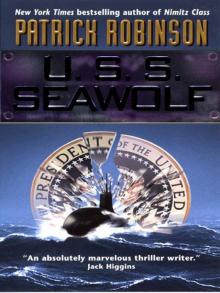 U.S.S. Seawolf
U.S.S. Seawolf